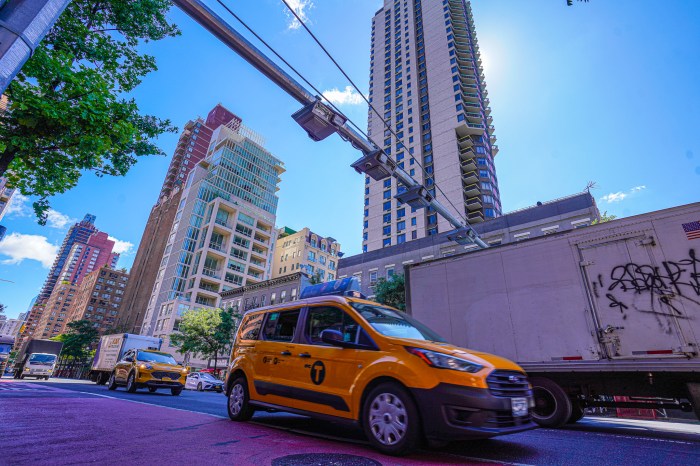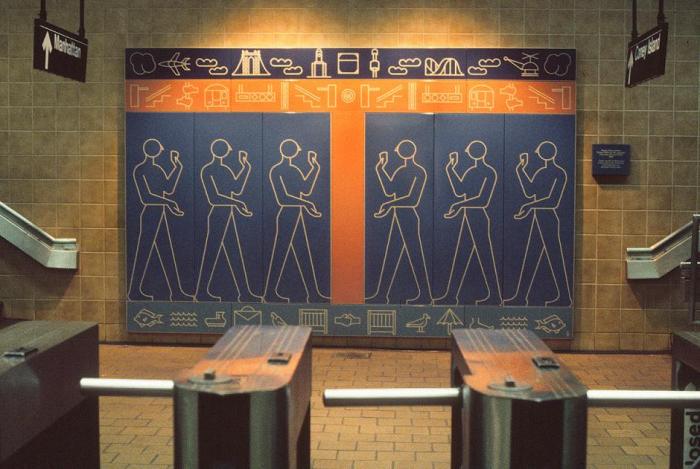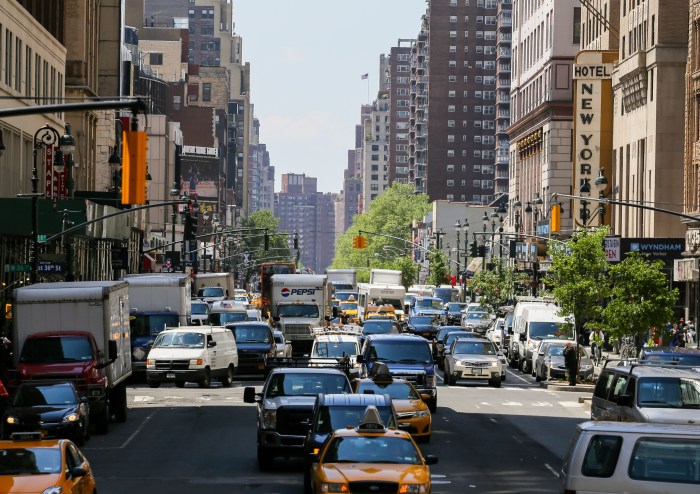The Taxi and Limousine Commission is trying to curb its sleepy drivers.
Mayor Bill de Blasio and TLC Commissioner Meera Joshi announced Tuesday new rules to prevent fatigue among TLC drivers. The proposed policy would prohibit all drivers from picking up passengers for more than 12 hours in any 24-hour period and more than 72 hours in any seven-day period.
“We add new elements to our Vision Zero plan all the time,” said De Blasio in a statement. “This would help keep all road-users safer today, and bring us a bit closer to Vision Zero’s ultimate goal tomorrow.”
Currently, rules state that taxi drivers can’t operate on the clock for more than 12 hours at a time. But the city says that it’s a tough rule to enforce. Any break a driver takes can theoretically reset their hours of operation. And that rule currently only applies to taxi drivers, not other for-hires, like black or livery cabbies.
The new rules, the city hopes, will increase safety among all for-hires. They’re based on TLC research involving the Centers for Disease Control, the National Highway Traffic Safety Administration (NHTSA), the National Sleep Foundation, and the US Federal Highway Administration.
TLC said its research shows that routine long workdays leads to “acute fatigue” and loss of sleep, which slows drivers’ reaction times and increases the likelihood of a crash.
The city says that being awake for 18 hours is the impairment equivalent of a .05 BAC — considered as driving while under the influence of alcohol in New York State. Being awake for 24 hours, the city says, equates to a BAC of 0.10.
“Every day more than a million New Yorkers and visitors rely on our licensed drivers to transport them,” said Joshi in a statement. “To minimize the risk of a crash, drivers must be alert, which requires rest. But these crashes are preventable with a reasonable limit on the hours during which a driver can pick-up passengBhairavi Desai ers. Today’s proposal does that.”
Joshi added that the new rules would be enforceable with data the TLC is already collecting and noted that the “vast majority of TLC-licensed drivers are well under the proposed limits.”
Bhairavi Desai, executive director at the New York Taxi Workers Alliance, says the city should look at larger reforms to curb drivers working marathon shifts.
“Of course, drivers don’t work 12 hours out of leisure it’s out of necessity,” Desai said. “The real solution here is to help people earn a better living so they don’t have to exhaust themselves with such long shifts. Before Uber and Lyft, drivers may have been competing with two other cars for a fare. Now they’re competing with six.”





























